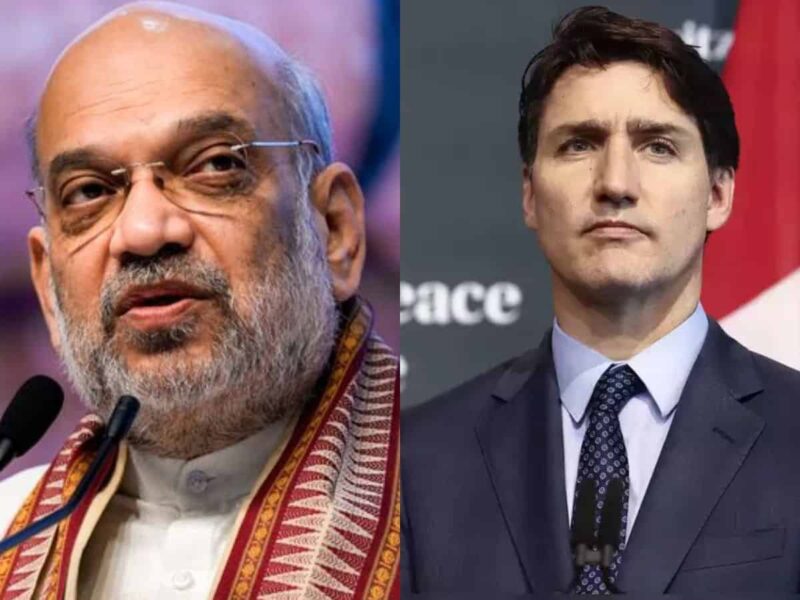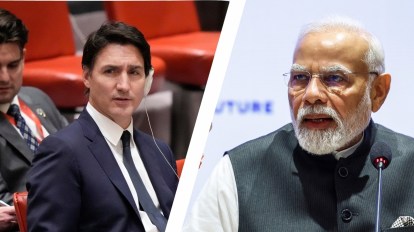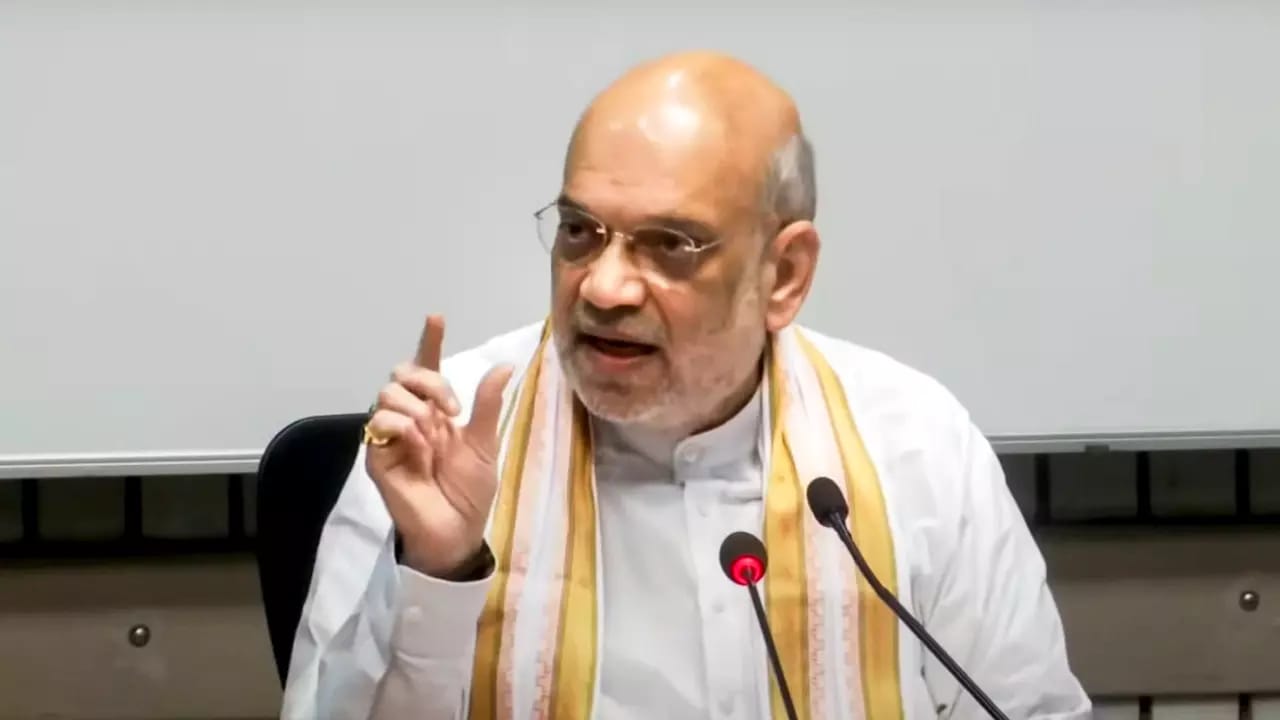India lodged a forceful diplomatic protest against Canada following allegations that India’s Home Minister Amit Shah was involved in a targeted campaign against Sikh separatists on Canadian soil. This accusation, initially reported by The Washington Post and later confirmed by Canadian Deputy Foreign Affairs Minister David Morrison, claims that Shah, a high-ranking member of Prime Minister Narendra Modi’s administration, directed intimidation tactics toward separatist groups advocating for an independent Sikh state, known as Khalistan, within Canada. This move has further strained the already tense relations between India and Canada, which have been marred by diplomatic controversies in recent years.
The accusation is rooted in longstanding tensions surrounding the Khalistan movement, a Sikh separatist movement calling for an independent homeland in India’s Punjab region. The movement has deep historical roots, and its violent insurgency in the 1980s and early 1990s left a lasting impact on India. However, Canada is home to a sizable Sikh diaspora, some of whom support the Khalistani cause, leading to political and social friction between the two nations. While India views Khalistani groups as a security threat, Canada has argued that its citizens are entitled to freedom of speech, complicating matters as separatist sympathizers often express their views openly in Canada.
The current dispute is a continuation of a controversy that began in June 2023, when Canadian Sikh activist Hardeep Singh Nijjar, a prominent Khalistani leader, was killed in British Columbia. Canadian Prime Minister Justin Trudeau suggested that agents connected to the Indian government might have been involved, a claim that set off a wave of diplomatic discord. India vehemently denied the accusations, dismissing them as “baseless” and retaliating by expelling Canadian diplomats from India. Both countries have since taken steps to limit diplomatic engagement, with the Indian government calling Canada’s charges “absurd” and lacking substantive evidence.
Canadian Deputy Foreign Affairs Minister Morrison publicly admitted to confirming Shah’s involvement in anti-separatist operations when questioned by a Washington Post journalist. This acknowledgment has led to speculation that Canadian authorities leaked intelligence to the press in order to pressure India. Despite these revelations, Canada has yet to present concrete evidence to back its claims, further complicating the matter and drawing scrutiny from the international community. Indian officials have criticized Canada for what they perceive as a deliberate attempt to damage India’s image globally by leveraging accusations without solid proof.
India’s diplomatic response underscores its strong opposition to Canada’s stance on Khalistani extremism. Indian officials maintain that Sikh separatists pose a legitimate threat, as exemplified by the violent period of insurgency in Punjab decades ago, which led to thousands of casualties. Since then, India has implemented stringent security measures to curtail separatist activities domestically. However, officials argue that Canada has failed to adequately monitor or restrict Khalistani sympathizers within its borders, thus creating a safe haven for individuals seen as a threat to India’s national security. This sentiment has sparked frustration within the Indian government, which believes that Canada’s leniency towards separatist activities undermines India’s efforts to combat extremism.

The diplomatic conflict between India and Canada has broader geopolitical implications. Both nations maintain close ties with the United States, a factor that adds complexity to the dispute. As two significant players in the Indo-Pacific region, Canada and India have been seen as strategic allies for the West in counterbalancing China’s influence. However, this recent row has created diplomatic challenges for Washington, which must navigate its alliances while maintaining regional stability. In response to the controversy, some U.S. officials have encouraged dialogue between India and Canada, emphasizing the importance of cooperation on mutual security interests and counterterrorism efforts.
The recent escalation also highlights a larger question regarding the limits of national sovereignty in a globalized world. While Canada argues that it must protect the rights of its citizens, including those who support controversial political causes, India insists that external nations should not provide platforms for movements that threaten its unity and stability. Canada’s approach to handling separatist sentiments has raised questions about the obligations of host countries to restrict activities that may incite violence or destabilize other nations. From Canada’s perspective, its commitment to free speech and expression remains paramount, while India contends that unchecked separatist rhetoric could lead to international security risks.
This diplomatic standoff has not only strained bilateral ties but also impacted the Indian and Sikh diaspora in Canada. Indian officials have expressed concerns that anti-India narratives promoted by some separatist groups could influence Canadian Sikhs and exacerbate divisions within the diaspora. In addition, the escalating rhetoric may potentially discourage further cooperation in trade, education, and cultural exchanges, both of which are areas where India and Canada have shared interests.
Observers note that this dispute may drive India and Canada to reconsider their diplomatic strategies, especially if the situation continues to attract international scrutiny. For India, maintaining its security stance against separatism is a matter of sovereignty, while Canada faces pressure to uphold principles of freedom and expression, which are cornerstones of its political landscape. However, the international community, including nations with interests in both India and Canada, could play a mediating role to de-escalate tensions and prevent a prolonged diplomatic fallout.
The situation remains a challenging test for both nations’ diplomatic resilience, as they navigate complex political issues that touch on security, human rights, and sovereignty. For now, the future of India-Canada relations hinges on whether both sides can bridge their divergent perspectives and find common ground, which may ultimately involve a delicate balance between upholding national values and addressing international concerns on security and extremism.
India’s diplomatic clash with Canada over allegations against Home Minister Amit Shah has underscored the deeper, complex issues at play, including the protection of sovereignty, concerns over separatist movements, and the delicate balance of international relations. While Canada frames its position as a commitment to human rights and freedom of expression, India views Canada’s stance on Khalistan as leniency toward what it considers an extremist and separatist ideology. This clash puts both nations in a challenging diplomatic situation, forcing each to consider how national policies and international perceptions intersect.
Canada’s claim about Shah’s alleged role comes on the heels of earlier allegations concerning the murder of Sikh activist Hardeep Singh Nijjar in 2023, which Canada attributed to Indian agents. This accusation led to a swift diplomatic fallout, with Canada expelling Indian diplomats and India responding similarly. The allegations have since grown into a full-blown crisis, with India and Canada locking horns over the legitimacy and consequences of these actions on foreign soil.
India’s perspective on Khalistan has been shaped by its historical experience with separatist violence, especially the insurgency in Punjab in the 1980s. The push for a separate Sikh homeland brought years of violence, leading to thousands of deaths and deepening divisions within the country. Since then, India has worked to suppress separatist activities domestically, but diaspora support for the movement—particularly in Canada—remains a sensitive point. India perceives Canada’s approach to these separatist elements as a lack of action against forces that threaten Indian unity, adding to India’s frustration with Canada’s stance.
Beyond the direct allegations, the broader impact on bilateral relations is significant. India and Canada have shared economic interests, and both have strong diasporic ties. However, these shared interests have been overshadowed by the escalating rhetoric. This diplomatic discord has also prompted Canada to consider the limits of its approach to handling foreign influences within its borders. While Canada argues that its citizens have the right to express political opinions freely, India’s contention is that these rights should not extend to supporting activities that threaten the security of other countries.
This situation complicates the position of both countries on the world stage, as they each maintain close relations with the United States and other Western nations. Canada has publicly called on its allies for support, but many countries have approached the situation with caution, not wanting to jeopardize their own strategic ties with India. The U.S., in particular, faces a balancing act as it maintains robust partnerships with both Canada and India while also advancing a strong Indo-Pacific strategy aimed at countering China’s influence in the region.

The allegations against Shah have intensified conversations about diplomatic immunity, intelligence-sharing, and the role of media in national security matters. Canada’s choice to confirm sensitive information to a media outlet underscores how diplomatic relations can be influenced by public perception and media narratives. As a result, this incident has not only led to a diplomatic standoff but has also raised questions about the handling of sensitive intelligence on a global stage.
Meanwhile, the Sikh diaspora in Canada finds itself at the center of this dispute. While many Sikhs in Canada are not affiliated with the Khalistani movement, the current tensions risk alienating sections of the Indian and Sikh communities. This could further strain social cohesion within Canada, as members of the diaspora are caught between differing national allegiances and identities. Moreover, Canadian leaders are now facing pressures from multiple fronts, as they balance domestic political needs with the repercussions of their foreign policy decisions on the India relationship.
International observers are closely watching the situation, noting that if this diplomatic impasse continues, it could set a precedent affecting how nations address issues of sovereignty, extremism, and diaspora politics. India’s position is that other nations should actively discourage separatist movements within their borders, especially if these movements pose security risks to other countries. On the other hand, Canada’s commitment to freedom of expression complicates this issue, as it must address the fine line between supporting civil liberties and managing international relations responsibly.
Read More :
https://thefirstcritic.com/blog/embracing-nature-the-spiritual-essence-of-govardhan-puja/
The potential fallout from this situation could have ramifications beyond Canada and India, affecting other countries facing similar issues with diaspora groups and separatist movements. For example, the European Union has also had to navigate delicate relations with diaspora communities that maintain political causes relevant to their home countries. The U.K. and other Western countries are paying close attention, especially considering their own security and diplomatic relationships with India.
To de-escalate, Canada and India would need to engage in direct dialogue that addresses the core issues underlying this crisis. Both countries have previously demonstrated the ability to resolve differences amicably in areas like trade and cultural exchange, but achieving this in the current climate will require transparency, trust-building, and, potentially, mediation by a neutral third-party nation.
In summary, this conflict highlights the challenges of managing national security concerns, diaspora politics, and freedom of expression in an interconnected world. How Canada and India navigate this issue will likely shape future diplomatic approaches to international allegations and influence how countries manage relations with their diaspora communities in politically charged contexts.
Source : Hindustan Times

